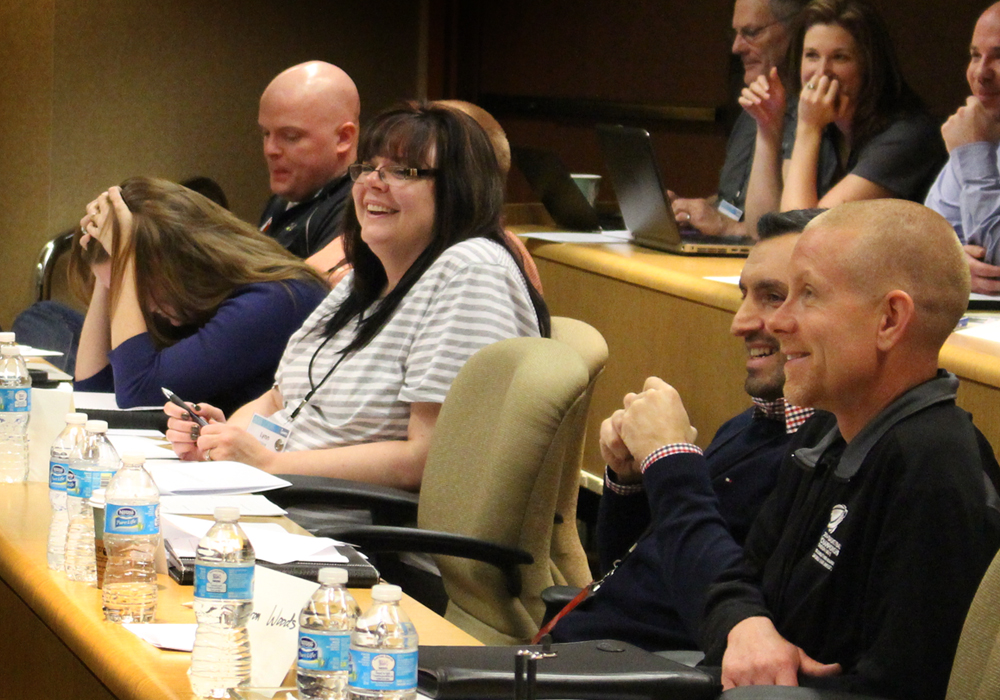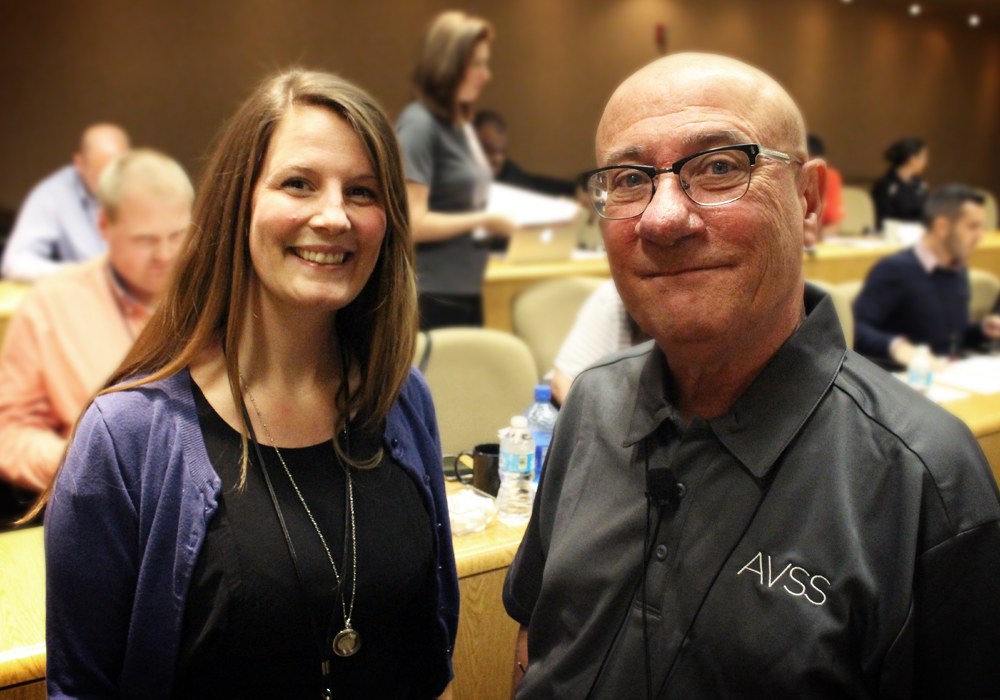Rich Singer, CFE, teaches the AVSS Year 2 class “Dealing with the Media in a Time of Crisis.” During the class, Singer transforms the room into a volatile press conference and persuades one brave student to take on the role of the venue manager in front of the mic.
Lara (Leh-Ra) Anderson, event manager at the Encana Events Centre, took the bait. Here’s her take on the experience:
It started off as an exercise on paper. Imagine there was a death in your venue. How would you respond?
The instructor took it to another level by asking the class for a volunteer to get up and participate in a mock press conference regarding the scenario. Singer wrote a few notes about what he was looking for in the volunteer (including but not limited to);
- The person cannot be very good.
- The person must have a willingness to learn.
I felt pretty confident that this was an exercise that I would not excel in, as I have not had any training in this area, but I knew that I wanted to learn how to navigate the scenario and improve upon my skills.
I was given a few minutes to review my statement while Singer briefed the class, and I have to say, did he ever prepare them!
I was terrified to walk back in. A lot of things were running through my mind, “What did I get myself into?!” being one of them.
I walked to the podium and read my statement. After I was finished, I opened the floor to questions from the “media” (my classmates.) They were very angry about the incident and asked some difficult questions that I was not entirely prepared to answer, but at the same time I felt like I should be providing them with something. That was mistake No. 1. Lesson learned? Do not give information that you do not have. If you have to repeat that you are fully cooperating with the police while they are handling the investigation, and that is all you can say for now, then continue to say it in answer to similar questions until you get your point across.
Another lesson to take away is that if a reporter gets you to say something, they can use it in an article. If you do not say it, they cannot print it. For example, one of my wonderful “reporter” peers said “death trap” multiple times to try to get me to say that the venue was “not a death trap.” Fortunately, I did not bite, but we talked about this point in review of the exercise and it was definitely something to remember.

(Lara, unaware that her mock press conference was recorded, endures a play-by-play critique from her classmates.)
The craziest moment was when someone asked if their son, who goes to school with the person who passed away, would now be bumped up to the Varsity Team. I thought this was a joke, or a way to break the ice; however, the rest of the “media” did not think it was funny and got a little more irate as I told her I would keep my fingers crossed for her son (I was obviously joking!).
All kidding aside, this was an invaluable exercise for me. I believe that with practice and perhaps a little bit more coaching, I will have no trouble dealing with the media in the time of crisis; however, I hope that I—and everyone reading this—am able to avoid unwanted situations to the best of our abilities as we educate ourselves with the training provided at opportunities like the Academy for Venue Safety & Security (AVSS) and put what we learn into practice.
I am so happy to have been able to attend AVSS again this year and to have had this amazing experience. A massive thank you to the class for their extremely tough questions and judgmental responses to my answers—you know who you are!
“I have been doing this session for about 15 years,” Singer said. “I always get a willing volunteer to stand up in front of the class and get grilled by the ‘press core.’ Lara was no exception. She bravely kept her cool through the whole experience. Great job, Lara!”

